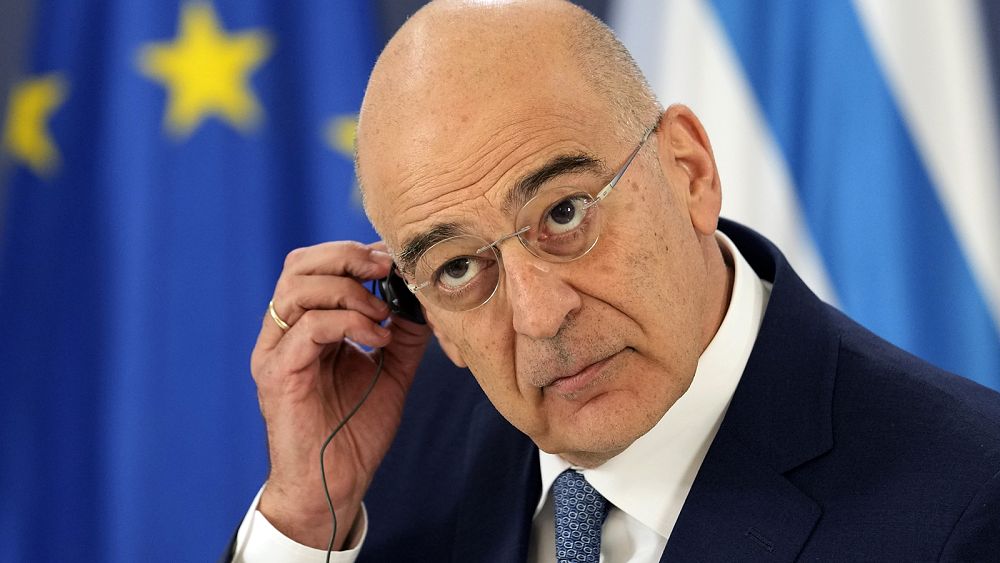The Greek foreign minister canceled the first leg of his visit to Libya moments after landing in Tripoli on Thursday.
Nikos Dendias was on a two-part trip to meet Libya’s rival western administration in the capital and the eastern-based administration in the city of Benghazi.
But he refused to disembark from his plane in Tripoli when his counterpart, Najla Mangoush, came to the airport to greet him. Instead, Dendias flew to Benghazi ahead of schedule.
Mangoush signed the controversial Turkish-Libyan oil and gas exploration deal in October – a move Athens blasted, saying the government in Tripoli was not authorized to do so.
Dendias had previously asked to be hosted by Libyan National Transitional Council President Mohamed Younis Menfi and that no one else would be present at the meeting, Greek press reported.
The Greek Foreign Ministry described the incident as a violation of protocol and the conditions agreed for the visit.
In a terse statement, Athens condemned the decision and promised to retaliate “with appropriate diplomatic measures”.
Gas deal fuels new Mediterranean squabbles
Since March, two governments have been fighting for power in Libya after the 2011 uprising.
A Tripoli-based government spokesman said Mangoush’s presence at the airport was part of diplomatic conventions and that Dendias left the city “without offering an explanation”.
In response, Tripoli said it had recalled the Libyan ambassador to Athens and summoned the Greek charge d’affaires.
Tensions have risen in the Mediterranean following a controversial maritime and gas deal between Turkey and the government in Tripoli.
Last month’s preliminary deal was rejected by Greece and Egypt, who also accuse Turkey of using the deal to try to expand its influence in the region.
During a visit to Cairo last month, Dendias said the deal violated Greece’s maritime borders.
In 2019, Turkey signed another controversial maritime border deal with Tripoli, granting it access to a disputed economic zone in the eastern Mediterranean.
The deal ignored the existence of several Greek islands, including Crete, and reignited tensions over oil and gas drilling rights.
Meanwhile, Cairo and Athens have strengthened their ties in recent years, including signing new maritime border agreements with Cyprus.

